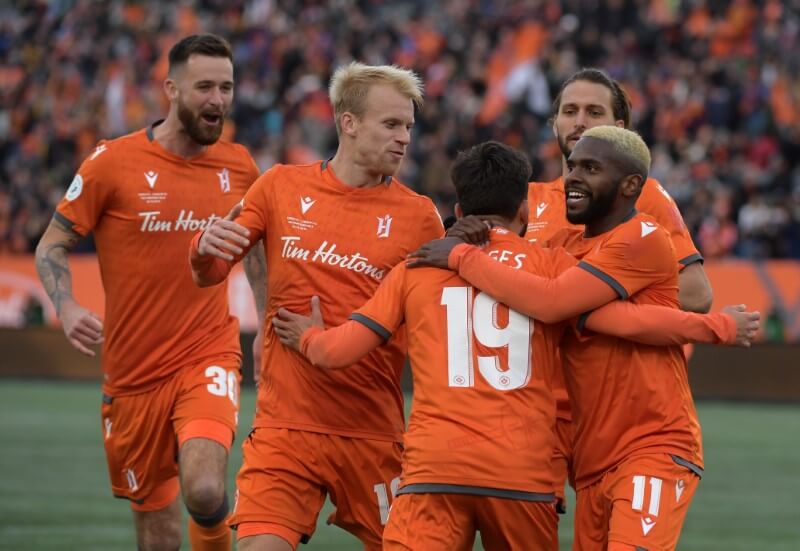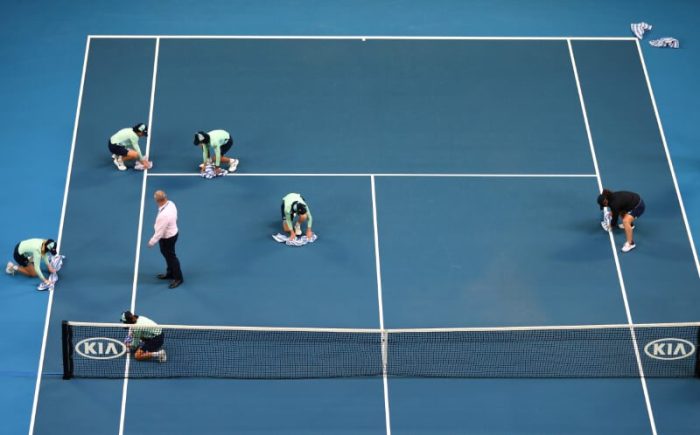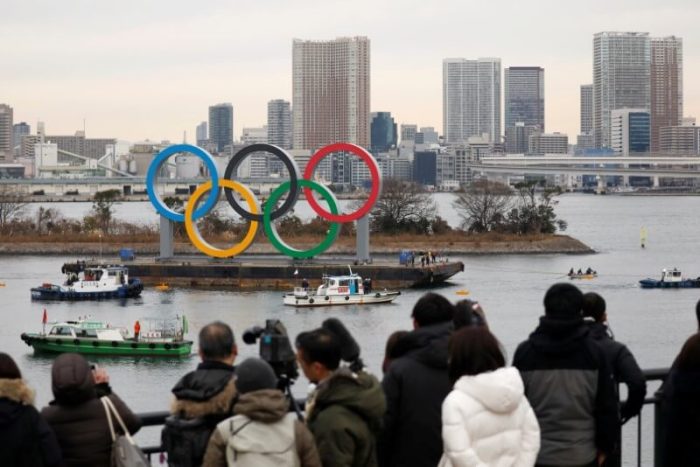By Steve Keating
HAMILTON, Ont (Reuters) – Having built one of the country’s most iconic brands, Canadian Premier League (CPL) commissioner David Clanachan knows better than most what his compatriots will buy and how to sell it to them.
The CPL will cap its inaugural season on Saturday with either the Hamilton Forge or Calgary Cavalry hoisting the North Star Shield, a maple and crystal trophy that Clanachan sees as symbolizing his league’s unique patriotic selling point.
“The North Star demonstrates and acts as a guiding light for soccer in Canada, a beacon for talent within our borders and a reminder of our purpose: For Canadians, by Canadians,” he said prior to the trophy’s unveiling.
Clanachan spent his entire business career, until jumping to the CPL, building Tim Hortons coffee and donut chain and knows that sporting startups are notoriously risky business.
The sport graveyard is littered with an alphabet of failures: the WHA (World Hockey Association), NASL (North American Soccer League), NFL Europe to name a few.
Underscoring the challenge facing the CPL, the Canadian Women’s Hockey League (CWHL) ceased operation in May saying it was no longer financially sustainable.
If a hockey league cannot survive in hockey-mad Canada what can?
Yet Clanachan and investors, who each stumped up $3 million franchise fees, believe the CPL can not only survive but thrive.
The sport is booming at grassroots level and a wave of immigration to Canada is helping fuel unprecedented interest in the sport.
Yet be it soccer or coffee the most important thing is the product.
While soccer is the global game, the CPL is describing their brand as “distinctly Canadian”, an attacking hard-nosed style where the feigning of phantom injuries is seen as unmanly.
All CPL rosters must be a minimum 51% Canadian and Clanachan noted that on some teams up to 80% of the starting 11 were home grown.
“If you are entertaining and you set it up the right way people are going to come,” Clanachan told Reuters. “But one thing I learned about being in the sport business is that it is really hard selling tickets, you have to work your ass off at it every day.”
This season the CPL sold 419,314 tickets and the seven-team league that stretches from the Pacific to the Atlantic across four time zones recorded an average attendance of 4,279.
The high watermark came on the opening day when the Forge hosted the York9, attracting a crowd of over 17,000 but all those tickets were free.
‘GROW THE GAME’
The first leg of the two-legged final played last Saturday in Hamilton, which the Forge won 1-0, pulled in 10,000 fans with another big crowd expected on Saturday in Calgary.
Clanachan rated the season as a “good” but not great start.
It was good enough, however, that the CPL is already looking at expansion, having received interest from 18 communities with three “very close” to coming on board.
The commissioner said he expects to make an announcement before the end of November, but due to a tight timeline any new teams are unlikely to begin playing until the 2021 season.
“We’re going to grow the game, we are going to grow it the right way,” said Clanachan. “This is about doing it properly from a business perspective.
“You see so many leagues start off and then they fail because they have zero fiscal responsibility.
“This isn’t get a billionaire and make him a millionaire, that is not how it works.”
This year the CPL was the shiny new object on the Canadian sport scene. Fans were curious and forgiving.
Next season Clanachan knows they will be more critical and less generous with their time and money.
The league is counting on those that came out were impressed enough to return, while the push for new customers begins in earnest the day after Saturday’s final.
“They (fans) are always going to raise the bar for you,” said Clanachan. “That’s why I am saying to all the clubs, all the guys at the office as good as we thought we might have been we’ve got to be better.
“People are going to say, well last year we gave you a pass we were on your side now we are going to be more critical and that’s when you’ve got to step up.
“We are going to need to be better and that’s everything: scheduling, how we entertain, play on the field that is all part of it.
“We have to be better at everything.”
(Editing by Toby Davis)























